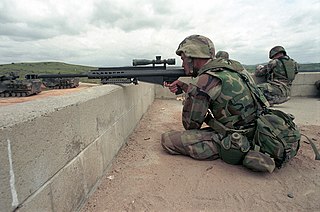by Stefan Schindler
Name me someone that’s not a parasite / and I’ll go out and say a prayer for him. Bob Dylan – “Visions of Johanna”
Dylan’s line is quoted in Dispatches, Michael Herr’s memoir of America’s Indochina Holocaust, euphemistically called “The Vietnam War” so as to keep the American public perpetually oblivious to Laos and Cambodia being sucked into the maelstrom like chickens caught in the vortex of Jeremiah’s “whirlwind,” except that Laotians and Cambodians, like the Vietnamese, were men and women, and, as Muhammad Ali observed in the unveiling of The Peace Abbey’s “Memorial Stone for Unknown Civilians Killed in War,” nine out of ten casualties in modern warfare are children.
Name me someone that’s not a parasite / and I’ll go out and say a prayer for him. What does this mean? Michael Herr offers a hint when he follows Dylan’s poetic genius with a line easily comprehensible: “I keep thinking about all the kids who got wiped out by seventeen years of war movies before coming to Vietnam to get wiped out for good.”
Vietnam has all too often been called the first war that America lost. People who say this fail to recognize that all of America’s wars are bloody stripes on the flag of “the greatest country in the world”–– a country that, with each war fought, lost her heart and crucified her soul.
The Vietnam War was a march of folly from the start, but that didn’t become clear until the Tet Offensive in late January 1968. “Anyway,” says Herr, “you couldn’t use standard methods to date the doom; might as well say that Vietnam was where the Trail of Tears was headed all along.”
Herr was a journalist whose many months in Nam were indeed a horror. “Talk about irony: I went to cover the war and the war covered me.” Marching, muddy, hungry, shot at. Too often too scared for words, but not immune to the sound of screams. And when not in the field? No relief from the stench and the heat. “Sitting in Saigon was like sitting inside the folded petals of a poisonous flower.”
I once interviewed a vet who’d been a medic in Nam. It was late at night. I asked him what it was really like. He leaned across the kitchen table, beer in hand, stared at me with eyes like the twin barrels of a shotgun, then said: “One minute in Vietnam could be an eternity in hell.”
Herr was there. He knew. He spent a lot of time with the grunts, humping booby-trapped trails that put bamboo spikes through the soles of boots and blew soldiers into trees. Herr wonders: “Where are they now? (Where am I now?) I stood as close to them as I could without actually being one of them, and then I stood as far back as I could without leaving the planet.”
Inhale. Exhale. “Waiting for release, for peace, any kind of peace that wasn’t just the absence of war.”
And the Vietnamese? “We napalmed off their crops and flattened their villages, and then admired the restlessness in their spirit.”
Name me someone that’s not a parasite / and I’ll go out and say a prayer for him. What does this mean? Dylan knew, and Herr offers a clue. “The belief that one Marine was better than ten Slopes saw Marine squads fed in against known NVA platoons, platoons against companies, and on and on, until whole battalions found themselves pinned down and cut off. That belief was undying, but the grunt was not, and the [Marine] Corps came to be called by many the finest instrument ever devised for the killing of young Americans.”
Note from Kathie MM: Please don’t think of the Vietnam War/Indochina Holcaust, as ancient history, better off forgotten. The machine that perpetrated it is constantly on the prowl for new fodder and very effective at convincing people that war is the answer to the fears they’ve ignited. If you want to know who benefits from war, follow the money, and check back later for Part 2 of this post. And while you’re online, search out peace and social justice candidates for all political offices.




